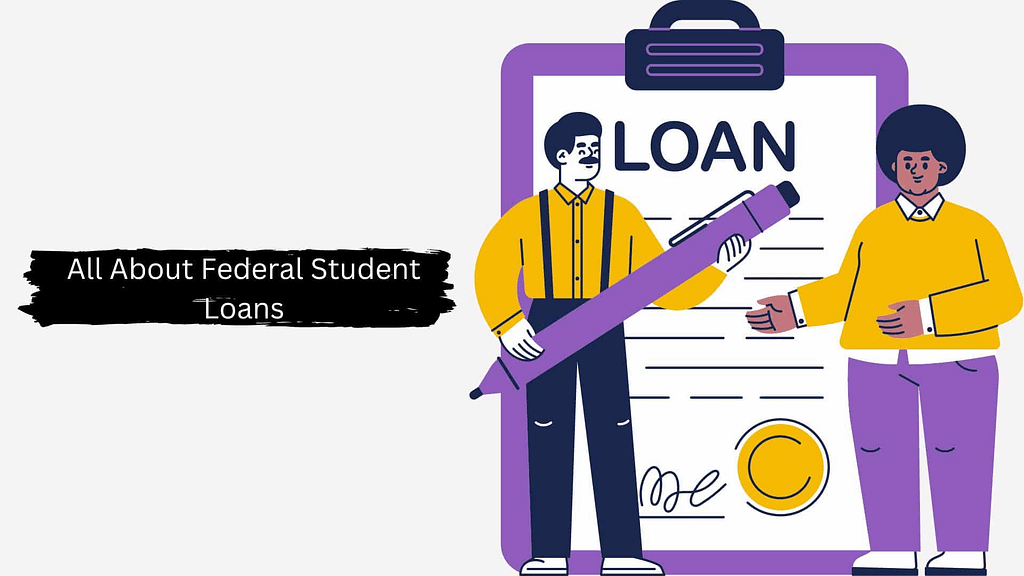Many people wish to own their dream homes and therefore mortgage loans are a cornerstone in real estate transactions; whether you’re in the USA or UK. Understanding how mortgage loans work is crucial for making good decisions as well as getting the best possible deal.
This inclusive guide covers everything from types of mortgages available, qualification requirements, rates, refinancing options and more in an effort to demystify the process behind taking out a home loan so that you can move confidently towards becoming a homeowner.
Understanding Mortgage Loans
What Is A Mortgage Loan?
A mortgage or home loan is a financial product designed specifically for buying property – it allows individuals to borrow large sums of money over long periods (usually with interest).
Types Of Mortgages:
Fixed-Rate Mortgages: With fixed-rate mortgages, homeowners enjoy consistent monthly payments throughout their loan terms which makes budgeting easier. These loans are commonly offered for 15, 20 or 30 years.
Adjustable Rate Mortgages (ARMs): This type features interest rates that change periodically based on prevailing market conditions. The initial rate may be lower than average but could rise higher later on.
FHA Loans: First-time buyers with low credit scores or small down payments often opt for FHA loans which are insured by the Federal Housing Administration against default risk.
VA Loans: Veterans can take advantage of this opportunity since they come with low-interest rates and require no down payment or private mortgage insurance (PMI).
USDA Loans: Issued by U.S Department of Agriculture as part its rural development initiative, USDA loans provide below-market financing options through direct lending programs targeted at those looking to buy houses outside urban areas; no down payment is needed too!
Step By Step Guide To The Mortgage Process:
Pre-Approval: Get pre-approved before starting your house search by submitting relevant financial documents such as pay slips and bank statements to lenders who will then determine how much money you can borrow.
Home Search: Go house hunting with confidence after being pre-approved because it gives you a clear idea of what price range to focus on. Consider aspects like location, size, amenities and potential resale value when making decisions.
Application: Once an applicant has found their dream home they should fill in a mortgage application form detailing all their personal information along with the property’s details as well.
Underwriting: This is where lenders evaluate risk by looking at both borrower profiles against appraisals among other things during underwriting; it helps them decide whether giving out loans would be profitable or not.
Appraisal: Appraisals are done to determine how much properties cost so that financial institutions do not lend more money than what a given house is worth.
Closing: The signing off stage happens here when all parties involved sign necessary documents which legally bind them into an agreement. Additionally, buyers may have pay closing costs such as loan origination fees, title insurances or even property taxes depending on state law requirements
DTI Ratio: Your DTI ratio, a comparison between your monthly debt payments and gross monthly income, is used by lenders to evaluate if you can take on more debt responsibly.
Down Payment: Although some mortgage programs provide low or no down payment options, a larger one can increase the chances of getting approved for a loan and result in lower monthly payments.
Tips for Finding the Best Mortgage Loan Rates:
Shop Around: Do not commit to the first mortgage offer you get. Compare rates and terms from numerous lenders to make sure you are getting the most favorable deal.
Improve Your Credit Score: Take measures to enhance your credit score before applying for a mortgage loan. Paying bills on time, reducing debt, and correcting errors on your credit report can all help improve your creditworthiness.
Consider the Term: Think about whether you want a shorter-term or longer-term mortgage loan based on your financial goals. While shorter terms may lead to higher monthly payments, they usually come with lower interest rates and less interest paid over the life of the loan.
Negotiate Fees: There is no harm in bargaining with lenders over which fees should be reduced or eliminated such as origination fees or closing costs since every dollar saved at this stage can translate into significant savings later on in time.
Common Mistakes to Avoid When Applying for a Mortgage Loan:
Overlooking Your Credit Report: Prioritize going through your credit report for any inaccuracies prior to making an application for a home loan as wrong information could affect negatively both upon one’s credit score as well eligibility towards such loans altogether.
Skipping Pre-Approval: By being pre-approved beforehand it enables someone figure out what their budget is like thus giving them more power when negotiating prices during house buying deals as they already know how much money could be spent without exceeding certain limits – therefore this step makes sense if taken seriously enough since no one would want find themselves unable afford something due lack planning caused by not knowing ahead time what were working with financially speaking.
Maxing Out Credit Cards: One should avoid using up all available credit or making large purchases before and during applying for a mortgage loan since such actions contribute towards raising debt levels hence increasing chances of being rejected by lenders due having high DTI ratios that indicate inability service additional debts as required.
Ignoring Closing Costs: It is important to factor closing costs into the overall budget while calculating total homeownership expenses because failure do so might leave one unprepared thus forcing them scramble around looking for money cover unexpected charges at closing which can be quite inconvenient more often than not especially if there are other pressing financial needs demanding immediate attention elsewhere.
Benefits of Fixed-Rate vs. Adjustable-Rate Mortgage Loans:
Fixed-Rate Mortgages: These types offer stability plus predictability thereby making it easier for homeowners when budgeting their monthly incomes; even when market rates rise, your mortgage interest rate remains unchanged throughout its term period.
Adjustable-Rate Mortgages (ARMs): ARMs usually have lower initial interest rates that attract those who plan selling off or refinancing their homes prior any adjustments been made on these figures but carry along higher risks since payments may go up significantly later years should rates start increasing again after some period has elapsed since signing this particular deal hereof.
How Credit Scores Impact Mortgage Loan Approval:
Credit Score Ranges: Generally, credit scores range from 300 to 850 where anything above 800 represents excellent while below 600 brings about poor creditworthiness; most lenders employ FICO scoring system which classifies ratings as follows:
Exceptional (800-850): Individuals having such ratings are likely qualify for loans with very low-interest rates imposed together most favorable terms attached thereunto according current market dynamics prevailing at any given point in time till date now when we write these words herewith accordingly thereafter until further notice be issued forthwith.
Very Good (740-799): Borrowers whose numbers fall within this range are deemed low risk by financiers hence may receive competitive loan offers.
Good (670-739): This category encompasses people whose scores make them eligible wide variety of financial products even though they might attract slightly higher charges than other borrowers having better credit histories do.
Fair (580-669): Those individuals who find themselves here could face some difficulty securing mortgage loans due either charging increased interests rates or demanding extra paperwork which must be submitted alongside application forms before approval can ever granted forthwith such kind of transaction under these circumstances.
Poor (300-579): If somebody happens fall into bracket then chances are that his/her chances getting approved for any type of home financing will remain slim unless major improvements made towards enhancing overall personal credit profiles.
Refinancing Your Mortgage Loan: Is It Right for You?
Frequently Asked Questions
What is a mortgage loan?
Mortgage loan or home equity line of credit (HELOC) is a type of loan that is used to purchase real estate property. It entails borrowing money from a lender which will be repaid over time with interest.
What types of mortgage loans are available?
There are several different kinds of mortgage loans including fixed rate mortgages; adjustable rates mortgages (ARM), Federal Housing Administration Loans (FHA), Veterans Affairs Loans (VA); US Department of Agriculture (USDA) Rural Development Loan Program among many others each having specific terms and requirements.
How do I qualify for a mortgage loan?
Qualifying for a mortgage loan depends on various factors such as credit score, income level, employment history, debt-to-income ratio and the size of down payment made towards the purchase price among other things.
What is the process like when applying for one?
The steps involved in getting approved are: pre-approval stage; house hunting phase; application submission step; underwriting process where lender decides whether to approve or reject your application based on their risk assessment calculations ; appraisal review conducted by an independent third party who determines current market value for insurance purposes only then there’s closing day which involves signing legal documents transferring ownership rights from seller to buyer after payment has been made.
What are current rates ?
Mortgage loan rates change frequently because they depend on market conditions, lender policies and individual borrower factors hence it’s important to shop around before settling for any particular lender by comparing multiple offers side by side in order to find best deal possible.
What documents will I need ?
Some common documents required when applying include but not limited too : proof of income / tax returns ; bank statements ; identification papers such as passport or driving license etcetera along with other relevant information about property being bought like location address , title deed details etc…
What is refinancing?
Refinancing involves replacing an existing loan with a new one usually for the purpose of securing lower interest rates, reducing monthly payments or changing loan term among other things.
How does my credit score affect it ?
Credit scores play big role in mortgage loan approval and interest rates charged. Generally speaking higher credit score attracts lower charges hence more favorable terms are offered by lenders.
Can I pay off early ?
Most mortgage loans allow early repayment without penalties but refer back to your specific contract terms just incase there’s anything that needs clarifying before deciding what course of action should be taken.
Conclusion
The world of mortgages can seem overwhelming; however armed with the information contained within this guide you will be well-equipped to take on the challenge. From understanding different types of loans available and what lenders look for in applicants, through strategies to get best rates possible – everything necessary has been provided here so that informed decisions may be made about how best achieve homeownership dreams. Remember also to consult trusted financial advisors or banks when necessary as everyone’s situation is unique so tailored advice would always come handy. All it takes is some careful planning coupled with hard work then any American (or British) home could become reality




